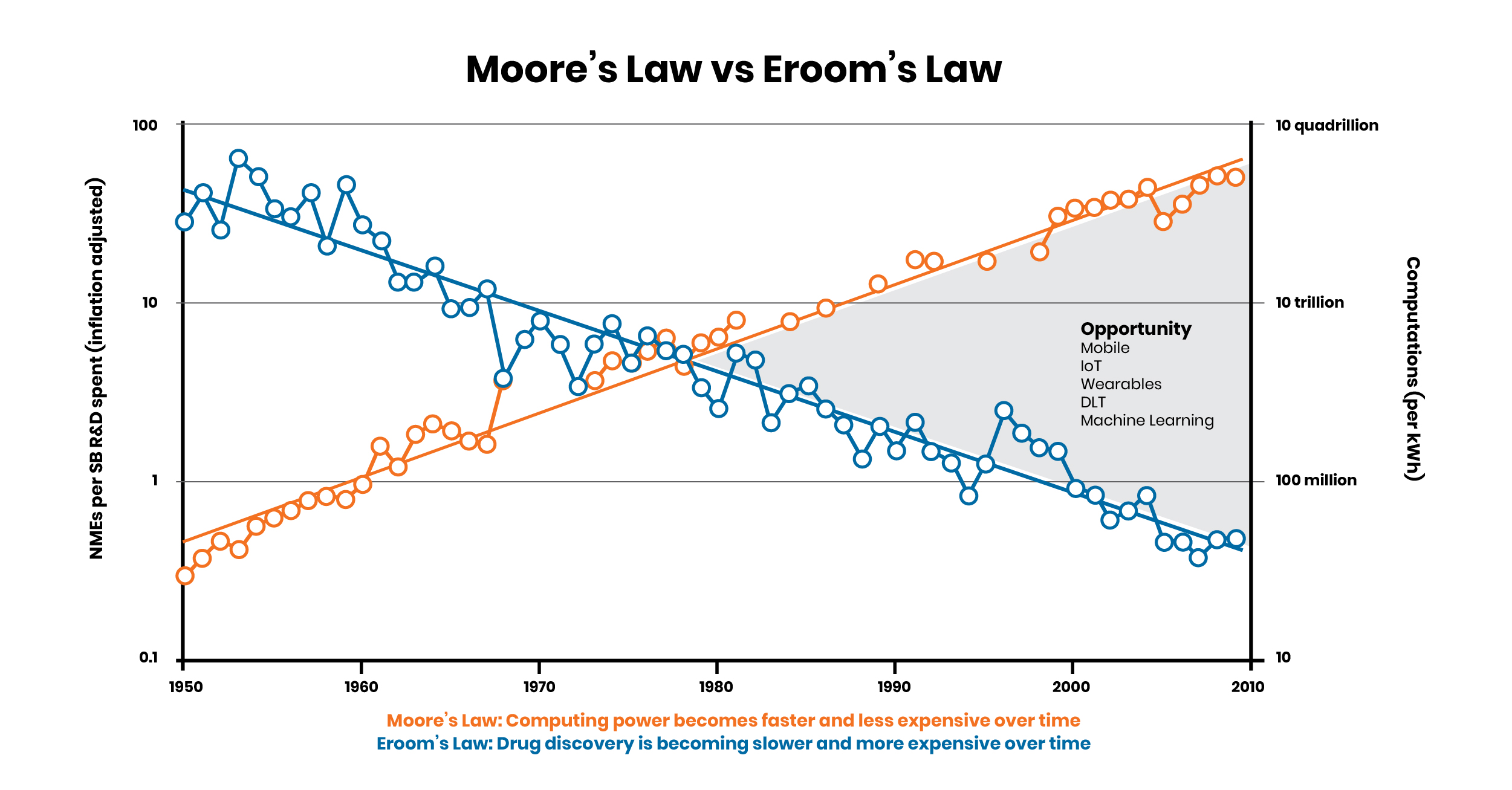
According to the uber-quotable Elon Musk, “Physics is the law, everything else is a recommendation. Anyone can break laws created by man, but I am yet to see anyone break the laws of physics.”
Until 2010, another inviolate law belonged to that of Eroom, which, as we interpret it, states that over time biomedical innovation decreases even as the cost of development increases. Eroom is Moore spelled backwards since Moore’s Law oppositely posits that improved technological performance and innovation are not only inexorable but cost saving, as the image below demonstrates.

Pharmaceutically what changed in 2010 was the discovery of RRx-001/nibrozetone. Whereas most pharmaceutical compounds are structurally related to other approved compounds, belong to the same therapeutic class as these original compounds, and are (more or less) used for the same therapeutic purposes, RRx-001/nibrozetone is sourced from the aerospace & defense industry and its closest chemical relative is trinitroazetidine (TNAZ), a component of rocket fuel. This made RRx-001/nibrozetone cheaper to develop since the pharmacologic and toxicologic profile of the drug, which it shares with its precursor, TNAZ, was known in advance.
Also, to best knowledge, RRx-001/nibrozetone is unlike any other pharmaceutical agent because it potentially harms tumors but protects normal, non-cancerous tissues. These dual properties are the basis for the upcoming clinical trial, KEVLARx, in which RRx-001/nibrozetone is administered with radiation and chemotherapy during the treatment of head and neck cancer (HNC) both to improve the anticancer effect and to reduce/prevent the debilitating side effect of severe oral mucositis.
Having brought up Elon Musk earlier, we mention that RRx-001/nibrozetone may reduce the effects of radiation exposure on astronauts during long space missions to the Moon and Mars, for example, as this publication entitled RRx-001 and the “Right stuff”: Protection and treatment in outer space describes.
Fingers crossed 🤞that RRx-001 is also an exception to the more well-known Murphy’s Law, which postulates that if anything can go wrong, it will.
